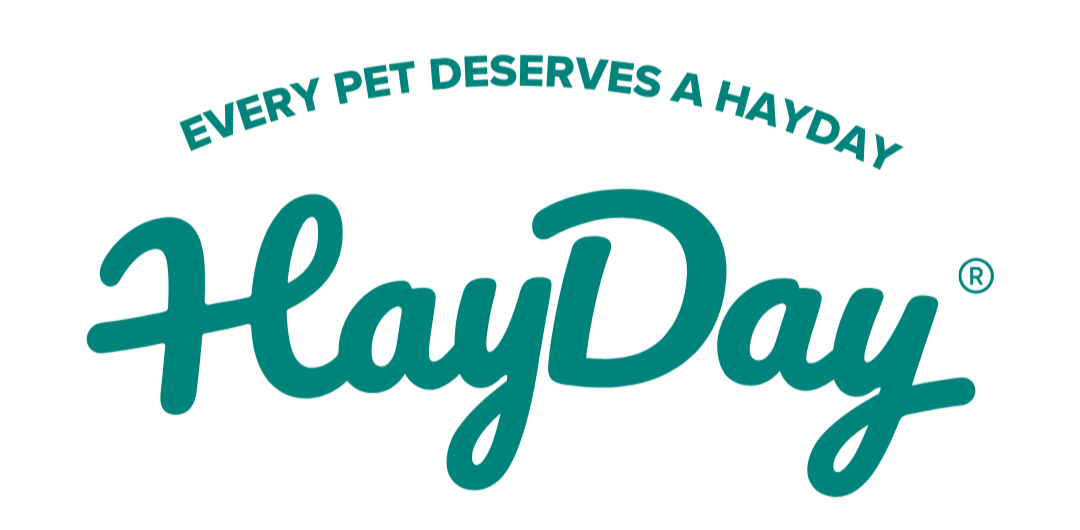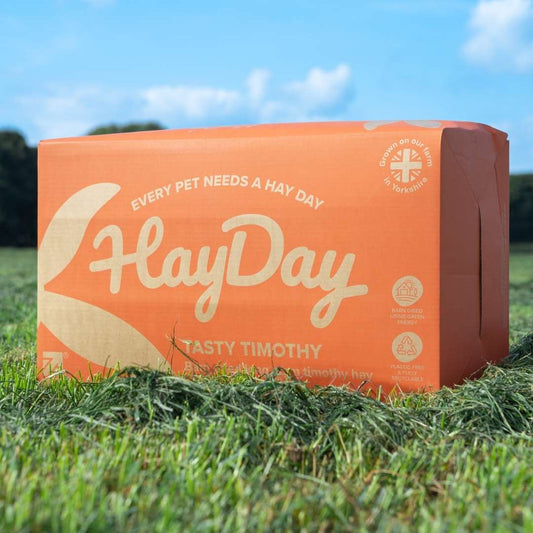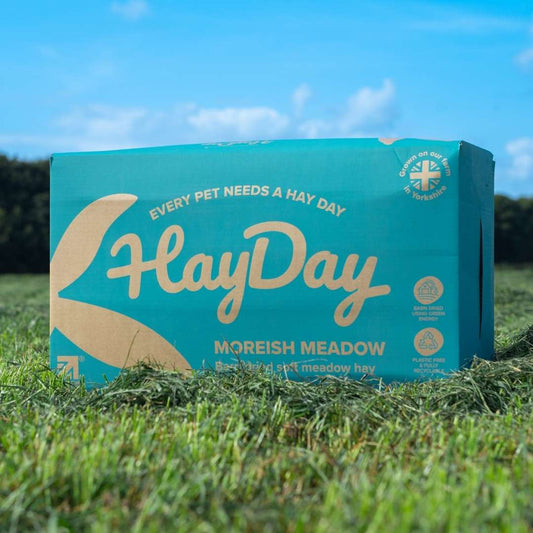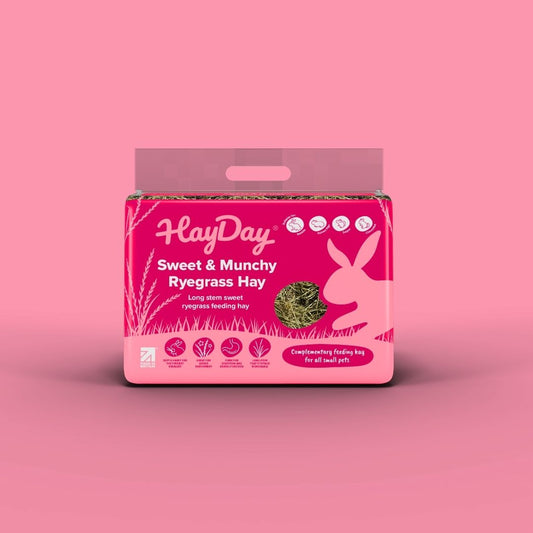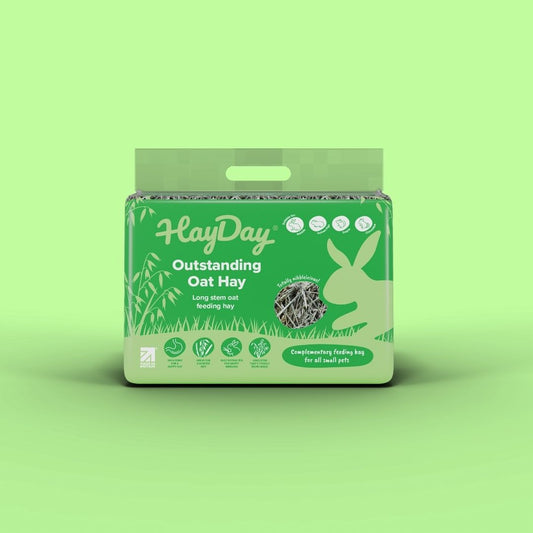
Rabbit Poo Guide from Our Expert Nutritionist
In this expert guide about rabbit poo, we spoke to our nutritionist Briony who gave us the ins, the outs and the expertise on the importance of checking your small animal’s poop including the key signs and symptoms to look out for.
Based in Cambridge, Briony lectures in Equine and Animal Science at Writtle University College alongside maintaining her nutrition consultancy. An expert in bunny poop, Briony has owned rabbits from a young age and has a keen interest in feeding for gastric and dental health.
Is My Rabbit's Poop Normal?
Small animals love to poop. A LOT! Whilst there are misconceptions that your rabbit’s poop is smelly, rabbit poop ruins your grass or that rabbit poop is dangerous for your dog, we’re here to de-bunk poop myths. Your rabbit’s poop isn’t something to ignore, as it can tell you so much about them! Plus, we’ve built up quite the community across our social media channels with our shared love of ‘golden poops’ - which is code for rabbit poop by the way! We’ll explain the rest later, in our helpful guide to poop.
Unlike us, small pet’s can’t speak to us to let us know that something is wrong, so this is why we have to be extra diligent and peep their poop to consistently monitor their health. Your small pet’s digestive system is the key to them having happy and healthy lives, for life. No matter the issue - big or small poop - we would always suggest seeking the advice of a trusted veterinary practice and/or an exotic vet if you’re ever unsure.
Caecotrophs VS Faecal Pellets
Your rabbit's diet will ultimately have an affect on the type of poop they do. This can be in terms of size, texture, colour and consistency. But, did you know that there are actually two different types of rabbit poop to look out for?
Caecotrophs
Caecotrophs are typically ‘soft, shiny and smelly’ and should be grouped together. According to the Rabbit Welfare Association and Fund, you should only see caecotrophs occasionally. If you see them and are concerned, or see them more frequently then expected you should speak to your vet.
Faecal Pellets
Faecal pellets are the type that you’re potentially the most familiar with! Healthy faecal pellets are typically large, round, golden in colour and they don't smell. If your rabbit's poop is instead small, hard, inconsistent in colour or just generally looking abnormal - we would suggest consulting your vet.
What does Rabbit diarrhoea look like?
Rabbit diarrhoea appears as loose, watery, unformed stool that lacks the usual round, dry pellet shape and often has a darker colour with a strong, unpleasant odour.
This can be caused by sudden dietary changes like adding in new veggies or fruit. But in worse cases, it can mean infections, parasites, stress, or low fibre intake, and is a serious health concern that can quickly lead to dehydration and gut stasis.
If you are unsure of the cause of your rabbit's diarrhoea, immediate veterinary attention is essential, alongside providing fresh water and high-quality hay to help restore digestive balance.
Read more - Tips for litter training a rabbit
Our Top Tips for Healthy Rabbit Poop
1. Maintain Adequate High Quality Fibre
Maintaining adequate and high-quality fibre helps to keep the digestive system healthy from start (teeth) to finish, with some of the first signs of a change in dental health often being evident in their poop.
2. Discover what is normal for your small pet
Just like knowing what is normal for your pet in terms of bodyweight, eating habits and activity levels, knowing what is normal when it comes to their poo is essential. To get a baseline of what is normal for your pet, take a picture of their poop under typical management and routine and keep this for reference.
You can also note down any details like smell, colour, and rough number passed over a set period. It should be noted that for some, slight changes day-to-day can be normal (different consistency in the morning vs evening for example) so if you can, initially take pictures over a week under normal management and pick a photo that is representative of the average.
Diet and management have a significant impact on colour, consistency, frequency, and smell of poo, so regular monitoring is essential. This can be an essential reference point particularly, for example, if you're leaving your pet with someone who is less familiar with them whilst you are away on holiday.
3. Movement & Water Keeps Things Moving
Movement and adequate water intake are essential in ensuring good gut function. Monitoring water intake alongside promoting activity will also help in promoting good quality poo! Fresh and clean water should be available at all times.
What Should I Look Out For In Rabbit Poop?
It is important to monitor any changes in your rabbit’s poop. Below we have a quick guide on the main signs and symptoms to look out for!
Colour and Consistency
Poo colour and consistency will change to reflect the diet. Poo will typically be softer and golden in colour when there is a premium quality, long stem hay offered on the menu, and firmer and browner in colour where hay isn’t the main fibre source.
Ideally faecal balls should be well-formed and moist but not too wet. Consistency may change in the short term (for a few movements) in response to stress which is normal, however if this change in consistency occurs at an unusual time or is persistent, this may indicate digestive disruption.
Number of Poops
The number of poos can also be useful to record for a short period to get a baseline of what is normal. This can be tricky where multiple small furries are housed together, but a change here can indicate an increase or decrease in food intake.
Smell
Changes in smell can coincide with dietary changes. Notably stronger-smelling poop can result from rapid dietary changes or stress.
What Should I Do If My Rabbit’s Poop isn’t Consistent?
Monitor Fibre Intake
Monitor fibre intake (hay) and ensure that this is adequate. Inconsistent hay quality can often be to blame, leading to fluctuations in intake. To avoid this, ensure you pick premium quality rabbit hay that is designed for small pets with consistency as a priority.
Check Their Teeth
Ensure dental health is not a factor impacting fibre intake. Regular dental checks, ideally as often as every week, are vital for pets where fibre represents the majority of their diet.
Monitor Water Intake
Where faecal balls are very firm, monitor water intake and ensure pets are active to help keep the gut mobile. This can be a real challenge with older small pets where activity levels are reduced. In these cases, combining different types of fibre and considering the moisture content of the diet can help. For example, introducing a small quantity of a fibre source with a higher water content (like grass) can help to keep things moving.
Very soft poo may be linked to stress or a recent change in diet. It is common to see this where grass is introduced to the diet very quickly as it has a much higher water content compared to hay. According to Briony, persistent loose poo with no obvious cause (investigated by a vet) may benefit from pro and prebiotic products like Protexin’s Fibreplex or ProFibre.
Very dark/black fresh poo may indicate a bleed in the tract and should be discussed immediately with a vet.

Image: A comparison of feeding a low-quality forage in comparison to HayDay’s premium, long stem hay
Summary
1. Is My Rabbit’s Poop Normal?
Have you noticed any extreme changes in your small pets gut health? It’s always important to be vigilant with any changes - the sooner and faster you spot changes, the better.
2. Has there been a change in colour, size, smell or consistency?
We would recommend taking a picture of your small pet’s ‘normal’ poop as a baseline, so that you can compare and monitor any changes with a reference to their norm.
3. Has my small pet had any changes to its environment that may have caused some short term stress?
For example, if your small pet has been in boarding (i.e. a change from their normal environment) whilst you have been on holiday, you may see a difference in their gut health upon your return. You could even provide your boarding host with a picture of their ‘baseline’ poop - so that they can be quick to spot any changes!
Frequently Asked Questions
Is Small Animal Poop Good for My Garden?
Rabbit poop is a great natural fertiliser for your garden! We’re all about sustainability at HayDay and always encourage you to look after Mother Nature.
Does Hay Give My Rabbit Healthy Poop?
The simple answer is yes! A high fibre diet for rabbits and other small animals is vital as it is great for not only their gut health, but their dental health too. With high fibre intake, you should expect to see firm, round, large and golden faecal pellets. If this isn’t the case, and you’re unsure, always consult your vet.
Why Do Rabbits Eat Their Poop?
Don’t be alarmed if you see your rabbit eating their own poop! It’s actually completely normal. The Rabbit Welfare Association and Fund notes that rabbits eating their own caecotrophs is a natural stage in their digestion.
Relevant Advice
Guinea Pig Health: How to Spot Symptoms
